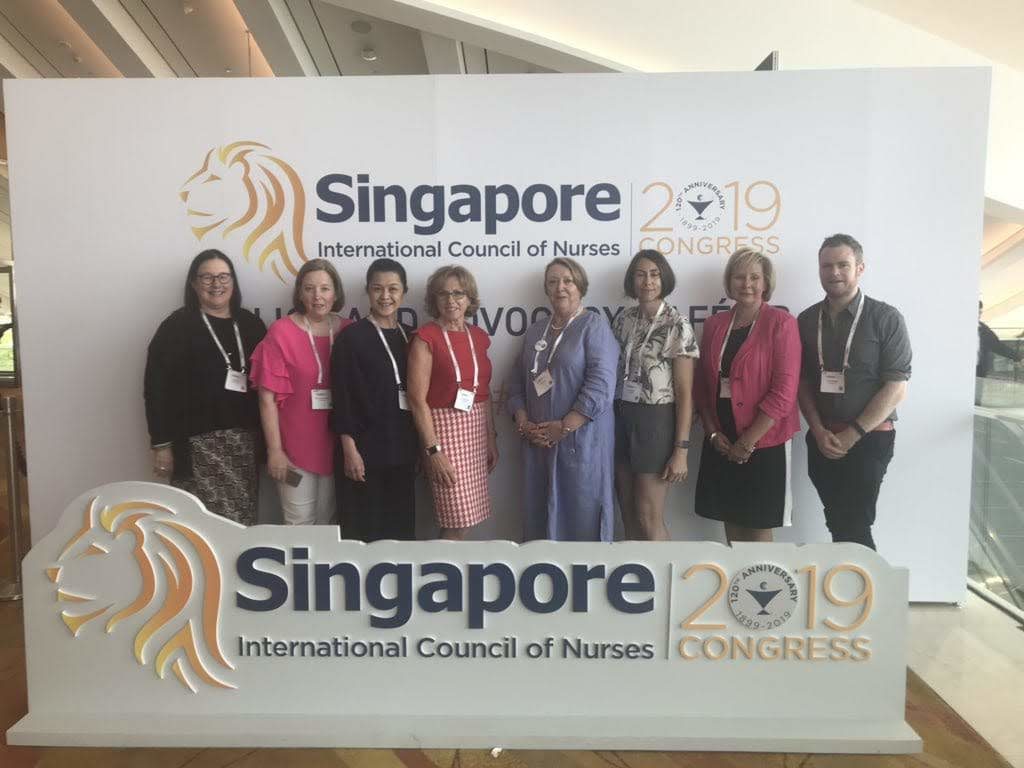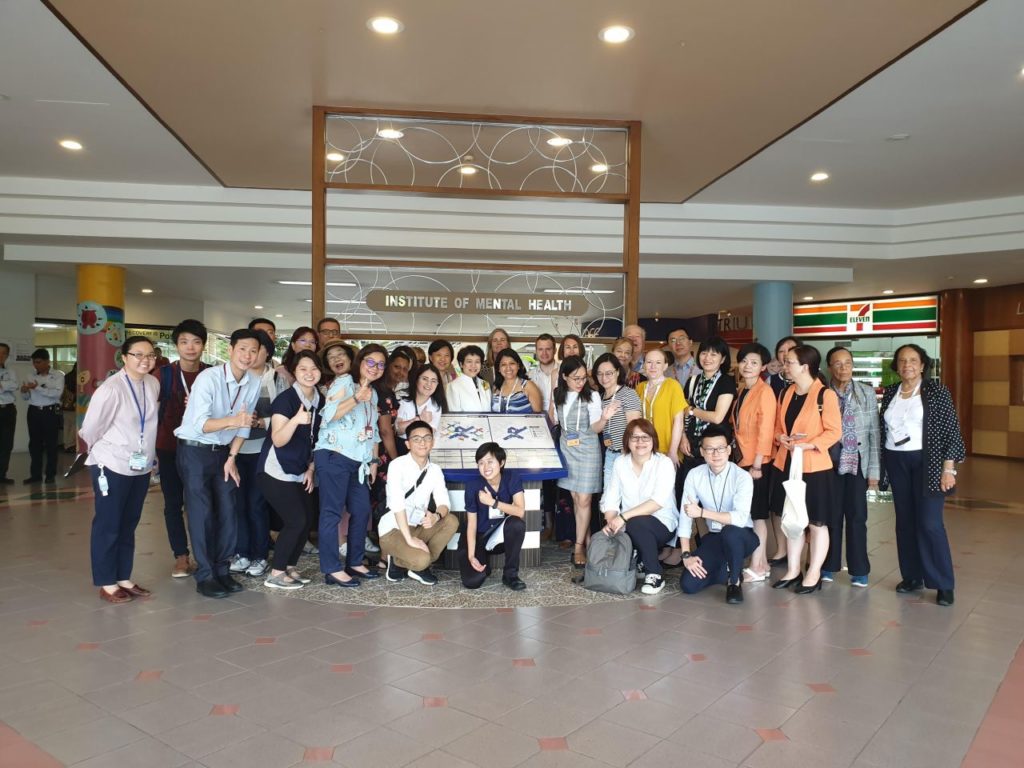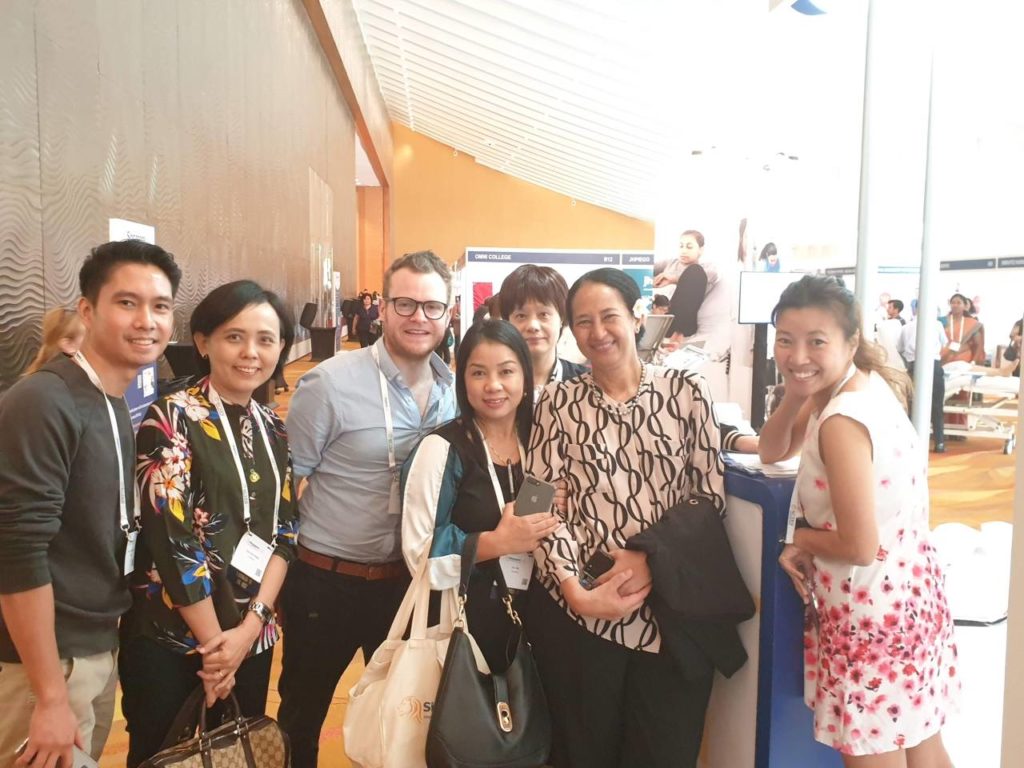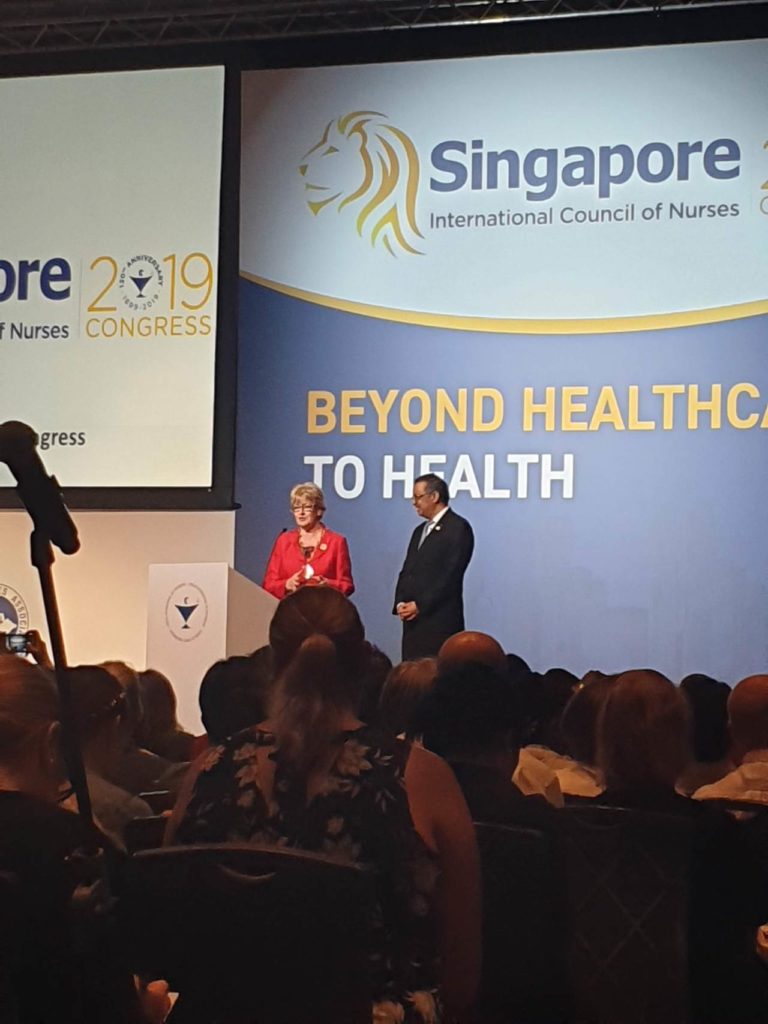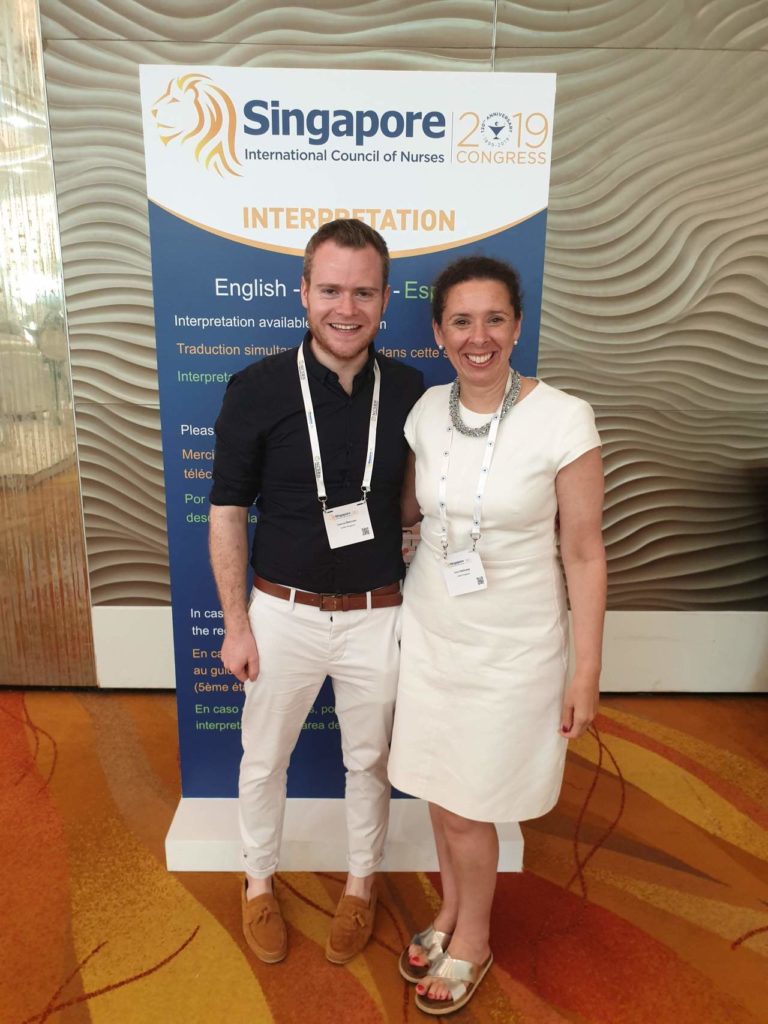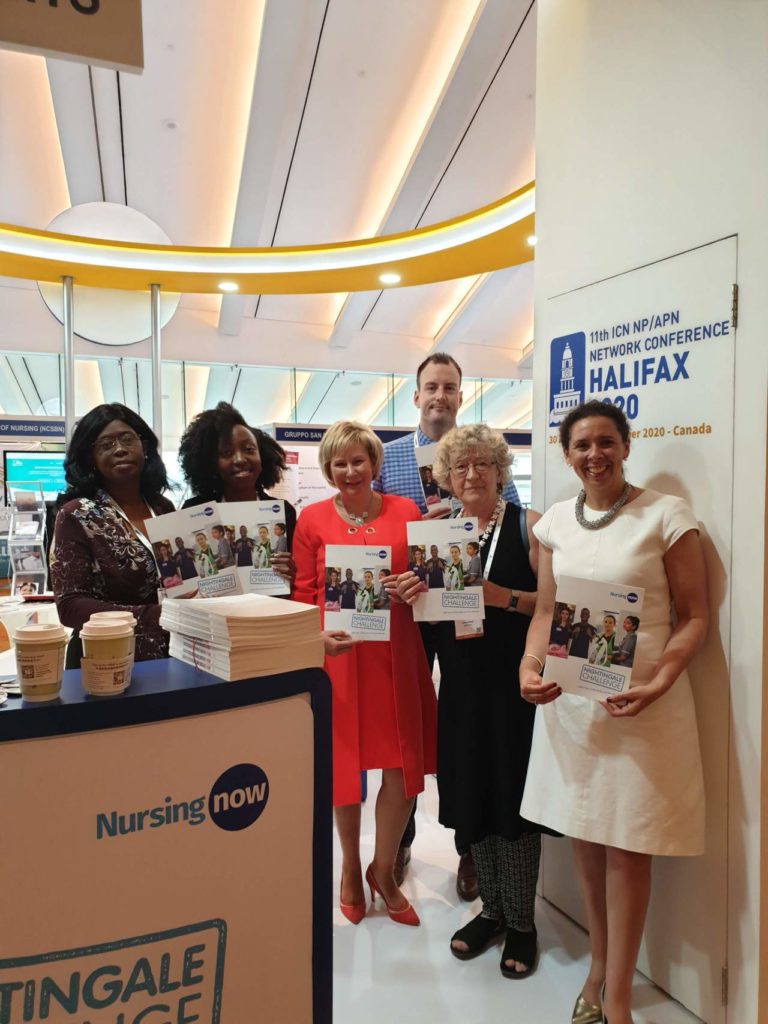I used my Go Abroad fund to attend and present a concurrent session paper at the International Council of Nurses (ICN) International Congress in Singapore. ICN Congress is the largest nursing conference in the world, being attended by approx. 6000 nurses from 135 countries. It took place between 27th June and 1St July. I factored in a few days for sightseeing as well as a visit to the local psychiatric services.
My concurrent session paper was a policy review of 8 English-speaking regions’ mental health strategies and what they said about the physical health of people with serious mental illness (SMI). People with SMI (such as schizophrenia and bipolar disorder) die between 10-20 years younger compared to the rest of the population and have significant rates of co-morbidities. This is not a UK phenomenon but so global in its grasp that the World Health Organisation (WHO) has formed an expert working group who have produced guidelines on how these major health inequalities should be tackled, many of which nurses are key to addressing.
I was worried most (besides presenting in front of the biggest audience of my professional career!) about possible culture shock. It was my first trip to Asia. Singapore is renowned for its socially conservative views and strict penal approach. However, my worries were completely unfounded. I found a spotlessly clean country where people were genuinely friendly, warm and hospitable but in a very respectful unassuming manner.
The main lesson from my trip is that decisions are not always made in large meeting rooms, rather through informal relationships developed during the coffee break. For example, there were eminent professors, heads of regulation and policy as well as chief nurses from nearly every health system in the world in attendance. I learned that these coffee breaks are a euphemism for networking and where various individuals and stakeholders access the influencers and by doing so affect policy and practice changes. I saw this in action when global healthcare leaders met and mingled during fringe and social events.
I also learned that policy gets shaped by asking difficult questions of people in positions of influence. For me that meant meeting the Chief Nursing Officer for WHO, Elizabeth Iro and asking her why of the 22 experts on the working group on my PhD topic, only 1 was a nurse. I got to meet the Deputy CNO for Scotland and pose questions to her about Scotland’s approach to safe staffing legislation during the formal session but afterwards privately.
I also learned that research does not have impact unless people are talking about it. It was therefore incredibly inspiring as an early career researcher to have publications and organisations tweet about my presentation and approach me to ask questions and pen articles. Impact in action!
Despite being nearly 11,000KM away from home, I learned that the pressing issues facing mental health services in Scotland are mirrored by services around the globe. Issues such as the management of smoking in psychiatric settings, balancing recovery-focused practice against the issues of compulsory treatment as well as the ever-present ‘delayed discharges’ are just as prevalent for Singapore as they are for the NHS. There is more that unites us than divides us.
All in all the highlight of my career to date!
Blog originally published on the University of Edinburgh Go Abroad Blog
